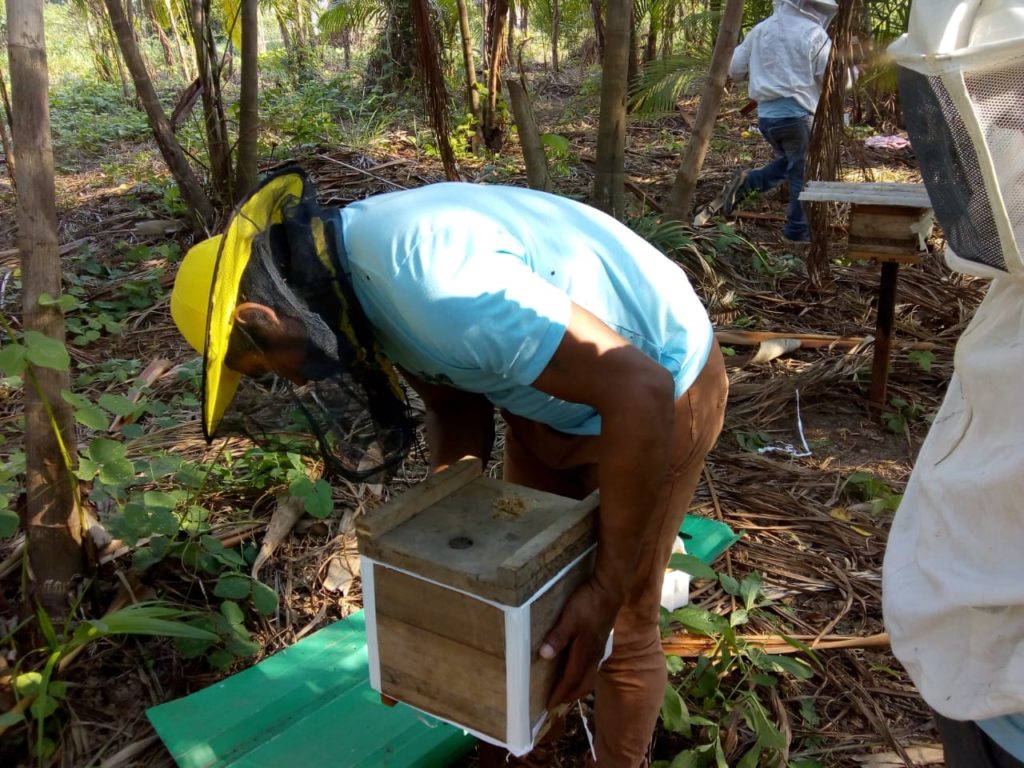Meliponiculture

Meliponiculture is a sustainable activity, which consists in the care of “stingless” bees.
This activity generates great benefits to the environment through pollination, which is a service provided by these insects, in a way that contributes to the regeneration of forests and increased biodiversity. In addition, pollination has high economic value, as it is fundamental for the increase productivity of agricultural crops.
From meliponiculture, it is also possible to extract some products for commercialization, such as honey wax, pollen, propolis and royal jelly. Therefore, meliponiculture is a viable activity which can generate income to local communities in the Amazon.
To support beekeeping practices with native bees in the Amazon area, we:
– Bring the best available practices of beekeeping to the local communities,
– Technically support the beekeeping activities to guarantee the constant high level of production,
– Develop research with specialists from local and international research institutes.
.
Why Bees?

Iraí (Nannotrigona punctata) with queen bee. 
Jataí (Tetragonisca angustula) 
Uruçu boca-de-renda (Melipona seminigra pernigra)
Bees conserve biodiversity
Bees possess great biological and economical importance. Due to their fundamental role in pollination, the preservation of bees is vital to the conservation of biodiversity and, added to that, they play a key role driving the agricultural productivity.
.
Why meliponiculture?
Bees are a very diverse group and the care and management of bees from the Meliponini tribe is refered as meliponiculture. The meliponini are often refered to as “stingless bees” as they have an undeveloped stinger that cannot be utilized in defense. These bees are present in diverse tropical regions around the world, including in the Amazon area, and act as primary pollinators of diverse native species.
.
Amazonian Native Bees
In the Amazon forest, it is possible to find a large diversity of native bees, as Melipona seminigra, Oxytrigona flavelola, Melipona flavolineata, Melipona amazonica, etc. The majority of the “stingless bees” nidify in large niches in hollow trees, and due to the generalist food habits they are responsible for the pollination of substantial part native plants such as the following: açai (Euterpe oleracea), cashew (Anacardium occidentale), taperebá (Spondias mombin), and Brazil nuts (Bertholletia excelsa).
.
High-quality bee products
While strengthening the local environment, meliponiculture can at the same time be developed as an income option for family farmers in the region. The native bees generate a range of products including honey, propolis, pollen, royal gelée and wax. These products are also known from apiculture (European honey bee), but meliponini produce them in a higher quality and much smaller quantities per hive.
